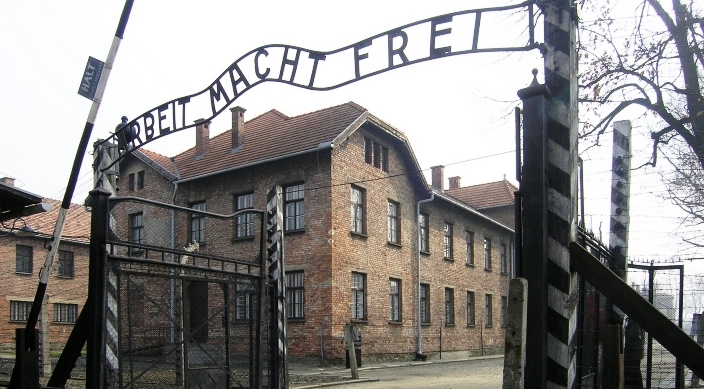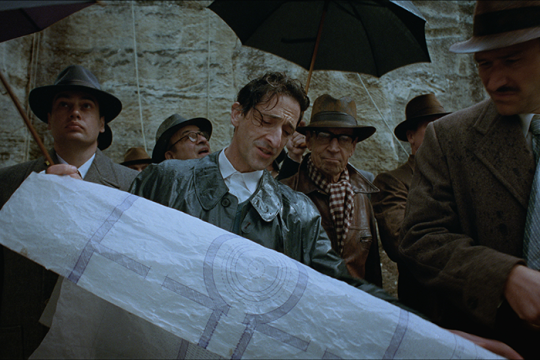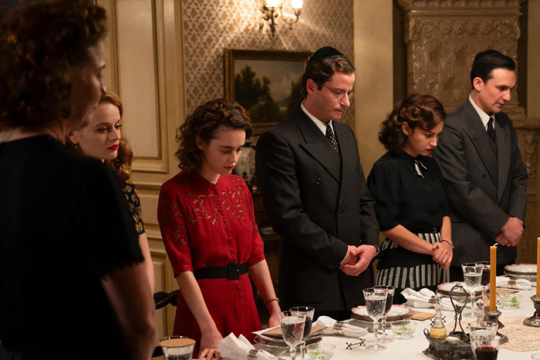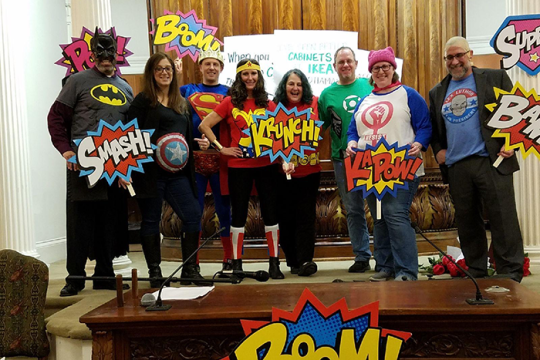Why Did Roosevelt Abandon Europe's Jews?

Dr. Rafael Medoff is the founding director of The David S. Wyman Institute for Holocaust Studies in Washington, D.C., which focuses on America’s response to Nazism and the Holocaust. He has taught history at Ohio State University, SUNY-Purchase, and elsewhere and authored more than 20 books about the Holocaust, Zionism, and American Jewish history. We sat down with Dr. Medoff to talk about his most recent book, The Jews Should Keep Quiet: Franklin D. Roosevelt, Rabbi Stephen S. Wise, and the Holocaust (The Jewish Publication Society).
ReformJudaism.org: In 1984, David S. Wyman published his highly acclaimed book – The Abandonment of the Jews: America and the Holocaust 1941–1945 – about the failure of the U.S. government and American Jewish leadership to rescue more Jews during the Holocaust. What new information or insights have come to light that warrant a reexamination of this subject?
Rafael Medoff: The discovery of more than a dozen hostile remarks about Jews that President Franklin Roosevelt made in private is a game-changer. It answers a question that had puzzled historians for decades: Why did President Franklin D. Roosevelt refuse to take rescue steps that involved no political risk – such as quietly allowing the existing immigration quotas to be filled, or temporarily admitting refugees to U.S. territories such as the Virgin Islands?
What were some of those remarks and how did you uncover them?
FDR didn’t keep a diary or tape his Oval Office conversations. So his remarks about Jews come from the papers of close colleagues with whom he spoke. He boasted to Henry Morgenthau, Jr., about his role in limiting Jewish admissions to Harvard. He told Rabbi Wise that antisemitism in Poland was the result of Jews controlling the economy. Vice President Henry Wallace wrote in his diary that Roosevelt said he wanted to “spread the Jews thin.” The transcripts from the 1943 Casablanca Conference, held so the Allies could strategize for the next phase of World War II, show FDR saying Jewish domination of professions in Germany provoked an “understandable reaction” by the German people. And so on. Some of Roosevelt’s remarks about Jews were discovered by me; some were discovered by other historians, but they didn’t recognize they were part of a pattern and influenced his policies.
You framed The Jews Should Keep Quiet around the relationship between the president and Rabbi Stephen S. Wise, “the foremost leader of the American Jewish community in the 1930s and ’40s.” Why was their relationship so pivotal?
As the leader of no less than five Jewish institutions – the American Jewish Congress, the World Jewish Congress, the American Zionist movement, a major synagogue, and a rabbinical seminary – Wise’s stature in the Jewish community was unparalleled. President Roosevelt manipulated Wise to refrain from challenging his refugee policy and to clamp down on others in the community. Rabbi Wise was the key to FDR’s effort to keep the Jews quiet.
The Roosevelt Administration insisted that there was no way to rescue Jews, except by winning the war. Was this a valid argument?
No. More than 190,000 quota spaces from Germany and Axis-occupied countries sat unused. U.S. “Liberty” ships that returned from Europe empty could have carried refugees. U.S. planes could have also bombed railways and bridges leading to Auschwitz, which was a few miles from their other targets. Jewish groups asked the Roosevelt administration to take these steps but were turned down with disingenuous excuses.
You suggest that FDR’s attitudes toward Jewish refugees “stemmed in part from the same bigoted notions that underlay his internment of more than 120,000 Japanese Americans. How so?
FDR’s private remarks about Jews and his writings about Japanese Americans in the 1920s were remarkably similar: neither could be completely trusted, neither would ever become fully loyal Americans, and both groups sought to dominate their surroundings. That’s why he proposed to “spread them thin” around the country.
How much was the Jewish response to the Holocaust hampered by power struggles, turf wars, egos, and general disunity within the organized Jewish community?
Sadly, Jewish leaders wasted a lot of time and energy fighting each other, instead of fighting Roosevelt’s no-rescue policy. Two examples: Rabbi Wise and Rabbi Abba Hillel Silver battled for control of the U.S. Zionist movement, and Wise was constantly trying to silence the Bergson Group activists, who sparked controversy with their full-page newspaper ads and rallies challenging FDR's policies.
You demonstrate how FDR succeeded in manipulating Wise to enforce the president’s efforts to keep the Jews quiet. What lessons can Jewish leaders draw about keeping silent and appeasement from FDR’s actions?
Two important lessons are “Don’t take ‘no’ for an answer,” and “Don’t keep quiet.” When FDR said rescue was impossible, Rabbi Wise simply accepted it. In sharp contrast, the Bergson Group persisted and, together with pressure from Congress and the Treasury Department, forced the president to establish the War Refugee Board in 1944. It was late, and it was little, but the Board played a major role in rescuing some 200,000 Jews in the final months of the war, disproving FDR’s assertion that saving the Jews could only be accomplished by winning the war.
Rabbi Wise’s Jewish Institute of Religion was merged with the Hebrew Union College in 1949. How has Stephen S. Wise’s standing in the pantheon of great Jewish leaders fared over time in the Reform Movement?
There has been a gradual acknowledgment that Rabbi Wise, for all his many accomplishments, had his flaws, too. At a Wyman Institute conference a few years ago, Hebrew Union College-Jewish Institute of Religion President Rabbi David Ellenson said that Rabbi Wise “failed horribly” because he allowed his “absolute and complete love” for FDR to “blind him” to the need to challenge Roosevelt’s abandonment of the Jews. Recognizing the errors of that generation’s leaders is necessary to ensure we don’t repeat them, whether the victims of genocide are Jews or others.
January 27, 2020, marks 75 years since the liberation of Auschwitz-Birkenau. In 2005, the United Nations General Assembly designated this date as International Holocaust Remembrance Day to commemorate the anniversary.
Related Posts

The Brutalist: A Jewish Immigrant Saga for the Ages

“We Were the Lucky Ones:” Bringing The Holocaust Out of History Books and Into Our Homes


